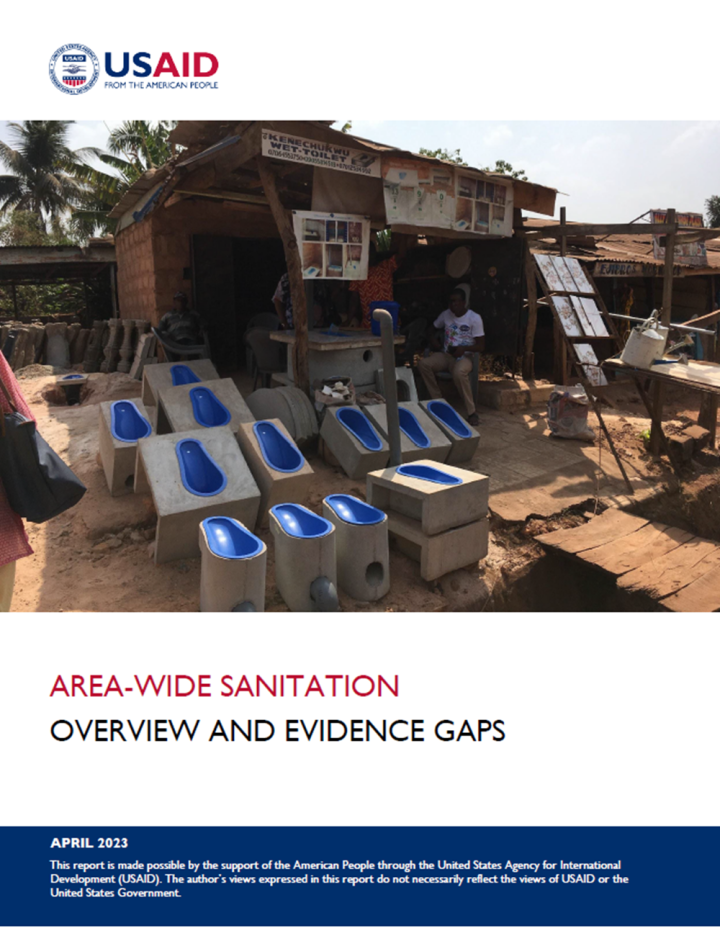Area-wide sanitation Overview and evidence gaps Crystal Huang, Steven Walker, Adrian Brillantes-Stepper, Carolien van der Voorden (2023)
The last few decades have witnessed substantial gains in access to sanitation, as nearly 2.4 billion people gained access to improved toilets and open defecation (OD) rates fell 12 percentage-points globally (from 21% to 9%) between 2000 and 2020. Despite this progress, many countries are off track to meet their sustainable development goal (SDG) 6.2 targets. To reach these targets by 2030, a concerted effort is needed to broaden, combine, and strengthen existing approaches throughout the sector.
One possible response to this is area-wide sanitation (AWS), a systems-based, outcome-driven framework to achieve equitable, universal access and use of safely managed sanitation and hygiene in a given administrative area, such as a district. The purpose of this desk review is to collate the definitions and frameworks developed for AWS and examine how AWS programming has been implemented in practice. The aim is to arrive at a common definition of AWS, identify its core components, and develop a high-level theory of change (ToC) for how these components are structured.
SELECTED KEY FINDINGS
• At their core, area-wide programs are deliberately equitable and inclusive by seeking to ensure that everyone in an area can access and use sanitation and hygiene products and services at all times, rather than only a specific target population.
• AWS is a framework, rather than an approach. Under AWS, a variety of interventions, approaches, and stakeholders unite to support achieving the intended outcomes for the entire population within the designated area.
• In practice, limited documentation exists on implementation of AWS by development partners or governments.
WASHPaLS #2 compiled these core components into a draft Theory of Change that connects them to the intended outcomes of AWS, though the largest gaps remain around the lack of documentation of area-wide programs in practice, including how these components are to be implemented, particularly in rural areas and under resource-constrained governments.
Bibliographic information
Crystal Huang, Steven Walker, Adrian Brillantes-Stepper, Carolien van der Voorden (2023). Area-wide sanitation Overview and evidence gaps USAID
Filter / Tags
English

